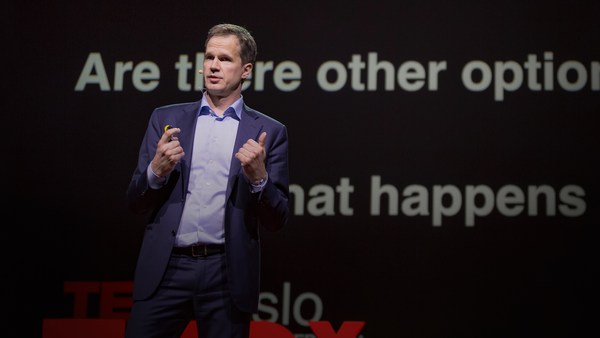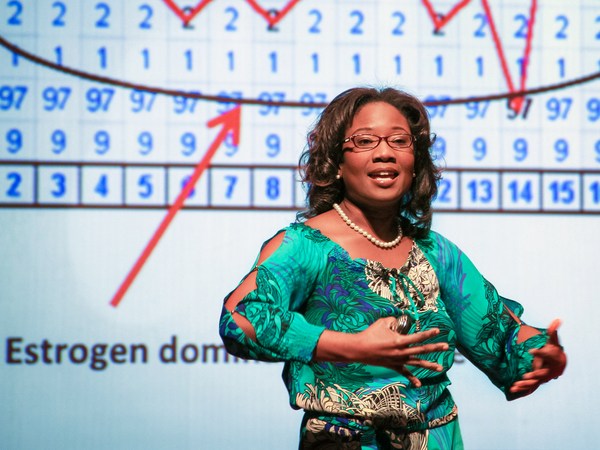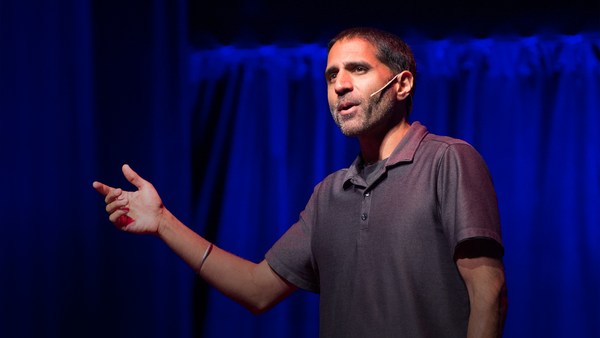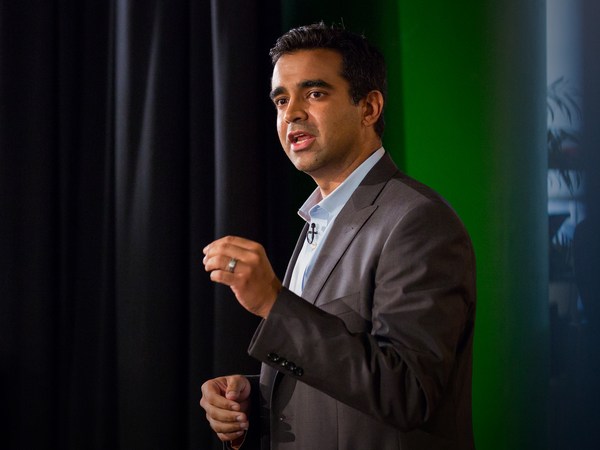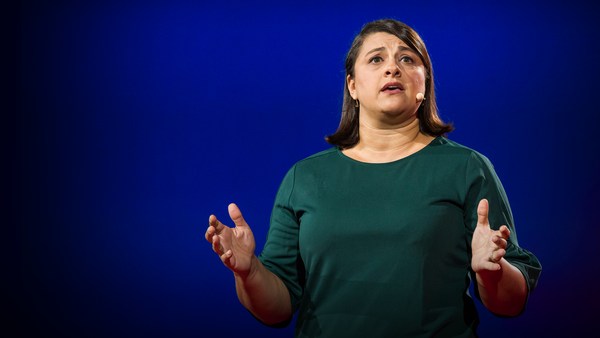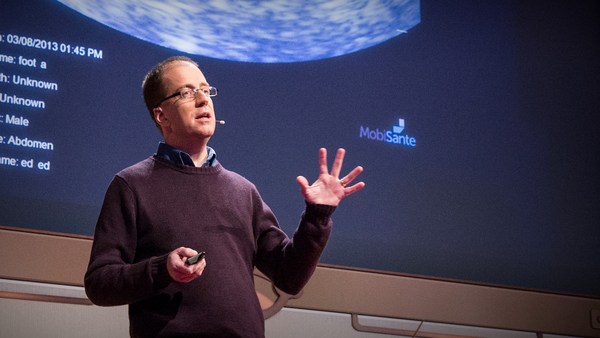When I first became a doctor in Benin City, Nigeria, some 30-odd years ago, I was drawn to help people live full lives. But often, I found myself feeling impotent. Here I was, a brand-new doctor with all these skills, but I couldn't cure my patients who had chronic diseases -- illnesses like heart disease, asthma, diabetes -- and needed more than just handing them a prescription or providing grief counseling in the office to get the job done. Fast-forward 15 years later: I'm in Atlanta, Georgia; it's a different world, but it was déjà vu all over again.
As doctors, we see our patients who have chronic illnesses in an episodic way. In between, the patients have to learn how to make a lot of decisions for themselves. I'll give you examples. If you have medications you're supposed to take every day, what do you do when you're sick? Are you still supposed to take it? How do you recognize a complication when it happens? How do you recognize a side effect when it happens? What do you do with it?
In addition to all of this, they're dealing with the inevitable loneliness, isolation and anxiety that people who have chronic illnesses deal with. In the US alone, six in 10 adults have a chronic illness. That's 125 million people. A recent report from the Robert Wood Johnson Foundation showed that health habits account for 50 percent of the health outcomes that people experience, while medical care only accounts for 20 percent. In fact, the Centers for Disease Control says that if we could eliminate smoking, physical inactivity and poor nutrition, that we can prevent 80 percent of heart disease, 80 percent of type 2 diabetes and 40 percent of cancer.
But we also know that changing health behaviors is very difficult. So we asked the question: What if we could create a resource that could motivate people to change health behavior? The truth is, there are a lot of these resources out there that help people acquire these so-called self-management skills. But many a time, they're not easily accessible or relatable, particularly to individuals within minority and underserved communities, who face bias in addition to barriers like language and culture and inadequate health insurance coverage.
And so in the last 12 years, my colleagues and I at Morehouse School of Medicine have created a technology-based application to assist with chronic illness care. It's freely available on the web and as an app. And what we do is get people to track variables -- blood pressure, blood sugar -- and then report it back to them in a color-coded format. So green would indicate a healthy range, and red would indicate a problem that needs something done about it. We link these stats to a curriculum. The curriculum helps the individual learn about their health condition, whatever the chronic illness is. They also work with a health coach to learn self-management skills, skills that'll help them prevent complications of their illness.
In order for the coach to be successful, they have to be able to gain the trust of the individual that they're working with. We tested this application in clinics, where the health coaches were medical assistants, and in a large urban church, where the health coaches were volunteers from the health ministry. A year later, a third of the participants were able to acquire three new self-management skills and maintain them to the extent that it was able to improve their blood pressures, their blood sugar and their exercise.
Now, what was simple yet fascinating to us was that the group from the church did just as well or even better than the group that were under purely medical care. And we wanted to learn why that was. So we looked a little further into the research -- 400 hours of recorded conversation -- and what we learned was that the coaches from the church did have more time to spend with the patients, they had access to the patients' families, and so they could figure out what people needed and provide those resources for them. My team and I call this "culturally congruent coaching."
To illustrate this concept of culturally congruent coaching, I want to tell you about one of our patients. I'll call her Ms. Bertha. So Ms. Bertha is an 83-year-old lady with diabetes and hypertension. She was assigned to Anne, her health coach in the church. Anne also happened to be a family friend to Ms. Bertha for many years, and they were fellow congregants. Anne observed after the first few visits that even though Ms. Bertha faithfully recorded her stats, they were all showing up as red. So she probed a little deeper to try to understand what was going on with Ms. Bertha, and Ms. Bertha gave her the real-real.
(Laughter)
She told her that there were times when her medications made her feel weird, and she wouldn't take them the way they were prescribed, because she thought it was due to the medicines but she didn't tell her doctor that. She also skipped out on some doctor appointments for a variety of reasons, but one of them was she wasn't doing better and she didn't want to make her doctor mad, so she just didn't go.
So Anne talked to Ms. Bertha and asked her to bring her daughter in for the next visit, which she did. And at that visit, Anne was able to print out a log of all these stats that Ms. Bertha had been collecting, gave them to her and encouraged them to go see the doctor together, which they did. With that information, the doctor was able to make changes to Ms. Bertha's treatment. Within three months, Ms. Bertha's numbers were all in the green. No one was more excited or surprised than Ms. Bertha herself.
Now, Anne was successful as a health coach because she cared enough to go below the surface and probe Ms. Bertha's deep culture and was able to reach her at that level. She knew how to listen, and she knew how to ask the right questions to get to what was needed. We all have deep unconscious rules that drive the way we make our health decisions. That's our culture. The relationship and the conversation between Anne and Ms. Bertha illustrates what's possible when we have conversations with our patients, our friends and our neighbors on a deep cultural level. And personally, I'm beyond excited to think that with this simple concept of culturally congruent coaching, we could change the lives of 125 million Americans and many others across the world that are living with chronic diseases.
Thank you.
(Applause)
